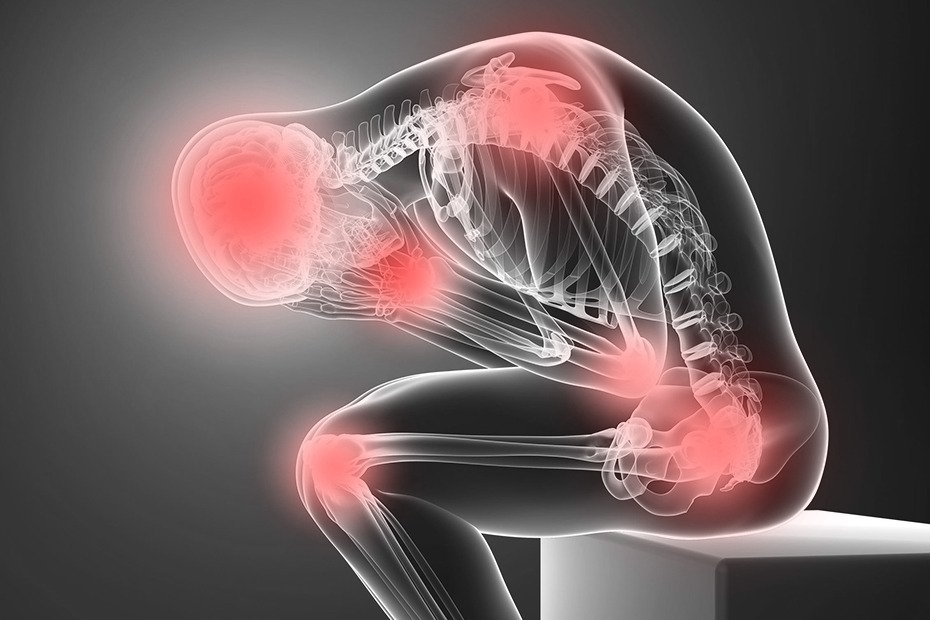Mitigate Pain Clinic – Dr Jeshnu Tople – Pain Management Specialist In Nagpur
Meet Our Doctor

INTERVENTIONAL PAIN AND SPINE SPECIALIST
Dr. Jeshnu Tople
MBBS, DA, DNB, FIAPM, FIPM, FIPP (USA), EDPM (Belgium)
- MBBS from Wardha, Maharashtra
- Diploma in Anaesthesiology from Wardha, Maharashtra
- DNB (Anaesthesiology) from New Delhi
- Fellowship in Pain Management (affiliated to Aesculap Academy, Germany)
- Fellowship of Indian Academy of Pain Medicine from Daradia Pain Hospital, Kolkata
Our Testimonials


Ishan Gadekar

Srujan Topale

Cancer Pain In Nagpur
Cancer Pain Management in Nagpur:
Managing cancer pain is a crucial aspect of cancer care, and finding the right support can make a significant difference in a patient’s quality of life. In Nagpur, cancer pain management services offer a range of options to help patients alleviate pain and improve their comfort during treatment. With specialized pain management techniques, experienced oncologists, and dedicated palliative care providers, Nagpur is a center of compassionate and effective cancer pain relief.
Understanding Cancer Pain and Its Management
Cancer pain can vary widely in intensity and type, from mild discomfort to severe, persistent pain. It may result from the tumor itself pressing on bones, nerves, or organs, or from cancer treatments like chemotherapy, radiation, or surgery. Effective cancer pain management in Nagpur is tailored to the individual’s needs, addressing pain at different stages and providing relief using various methods.
Common Types of Cancer Pain
Patients with cancer may experience different types of pain, such as:
- Nerve Pain: Often a result of nerve damage from cancer treatment, it can feel like tingling, burning, or shooting pain.
- Bone Pain: Caused by the spread of cancer to the bones, leading to deep, aching pain.
- Soft Tissue Pain: Due to pressure on organs or muscles, this pain may be dull or throbbing.
- Phantom Pain: Occurs when pain is felt in an area that has been surgically removed, such as after a mastectomy.
Cancer Pain Management Options in Nagpur
Nagpur’s healthcare facilities provide a range of pain management treatments specifically for cancer patients. These options are designed to relieve pain and improve patients’ comfort levels, allowing them to focus on recovery and overall well-being.
1. Medication Management
- Analgesics: Mild pain can often be managed with over-the-counter or prescription analgesics.
- Opioids: For moderate to severe cancer pain, opioids are commonly used under close supervision to provide relief.
- Antidepressants and Anticonvulsants: Certain medications typically used for other conditions can be effective for nerve pain associated with cancer.
2. Radiation Therapy for Pain Relief
- Radiation therapy can be used to shrink tumors that are causing pain by pressing on bones, nerves, or other organs, providing targeted pain relief.
3. Nerve Blocks
- Nerve blocks involve injecting medication near a group of nerves to block pain signals. This method can be effective for certain types of localized cancer pain.
4. Physical Therapy and Rehabilitation
- Physical therapy, guided by specialists in Nagpur, can help patients maintain mobility and reduce pain by strengthening muscles around painful areas.
5. Acupuncture and Integrative Therapies
- Acupuncture, meditation, and relaxation techniques can offer additional relief, helping manage pain and promote a sense of calm.
6. Palliative and Supportive Care
- Palliative care teams in Nagpur focus on improving the overall quality of life for cancer patients by providing emotional support, pain relief, and symptom management.
Why Choose Nagpur for Cancer Pain Management?
Nagpur’s healthcare facilities are known for providing compassionate and comprehensive cancer care. Patients benefit from:
- Experienced Oncologists and Pain Specialists: Specialists in Nagpur have extensive experience in managing cancer pain effectively and safely.
- Personalized Pain Management Plans: Treatment plans are tailored to each patient, ensuring pain relief that aligns with their individual health needs and type of cancer.
- Advanced Pain Management Techniques: Hospitals and clinics in Nagpur offer cutting-edge treatments, including minimally invasive procedures and innovative therapies to relieve pain.
Tips for Managing Cancer Pain at Home
In addition to medical treatments, the following practices can help manage cancer pain between visits to the clinic:
- Practice Relaxation Techniques: Deep breathing, meditation, and gentle stretching can ease muscle tension and help manage pain.
- Stay Physically Active: Light exercises, as recommended by a doctor, can improve circulation and help reduce pain.
- Maintain a Pain Journal: Recording pain intensity, triggers, and relief methods can help specialists in Nagpur adjust treatment plans for optimal pain management.
When to Seek Help for Cancer Pain in Nagpur
If you or a loved one is experiencing unmanageable or worsening cancer pain, it’s important to consult a specialist promptly. Cancer pain that goes untreated can affect mental well-being and physical health, so early intervention is essential. Reach out to a cancer pain management provider in Nagpur to discuss available options and develop a plan to improve comfort and quality of life.

FAQ's For Cancer Pain In Nagpur
Cancer pain is the discomfort or pain caused by cancer, either from the tumor itself pressing on tissues or nerves, or as a side effect of cancer treatments like surgery, chemotherapy, or radiation.
Cancer pain can arise from the tumor invading surrounding tissues, nerves, bones, or organs. Pain may also result from the side effects of cancer treatments, such as surgery, radiation, or chemotherapy.
Cancer pain is managed through various methods, including medications (pain relievers like opioids, NSAIDs, and nerve pain medication), physical therapy, radiation therapy, nerve blocks, acupuncture, and palliative care.
Cancer pain can be categorized into somatic pain (from bones, muscles, or tissues), visceral pain (from organs), and neuropathic pain (from nerve damage).
Pain from treatments like chemotherapy, surgery, or radiation can be managed with medications, nerve blocks, or supportive therapies like physical therapy, acupuncture, or massage.
If the pain is constant, severe, or unmanageable, or if it interferes with daily activities and quality of life, it’s important to seek medical advice.
Common medications include NSAIDs, opioids, steroids, antidepressants, anticonvulsants, and nerve blocks for pain relief.
While it may not always be completely eliminated, cancer pain can often be controlled or significantly reduced with the right combination of treatments.
Palliative care focuses on improving the quality of life by addressing physical pain, emotional stress, and providing support to both the patient and their family.
A nerve block involves injecting local anesthetics or steroids near specific nerves to block pain signals, providing relief from localized cancer pain.
Our Treatments
- Joint Pain
- Back Pain
- Sciatica Pain
- Neck Pain
- Hand Pain
- Shoulder Pain
- Foot & Ankle Pain
- Limb Pain
- CRPS Pain
- Cancer Pain
- Headache
- Hyperhidrosis
- Herpes Zoster Pain
- Chronic Pelvic Pain
- Scar Tenderness
- Postherpetic Neuralgia
- Trigeminal Neuralgia
- Peripheral Neuralgia
- Chronic Vascular Pain
- Generalised Body Pain
- Chronic Injury Pain
- Failed Back Surgery Syndrome
- Chronic Post Surgical Pain
- Other Painful Conditions
- Slipped DISC / PIVD